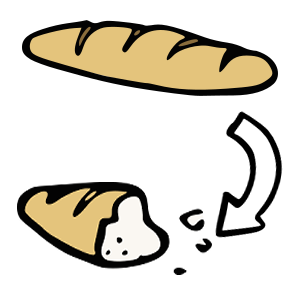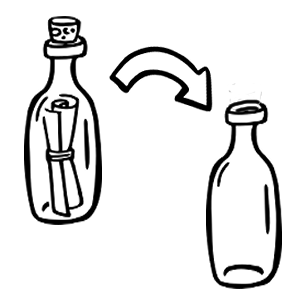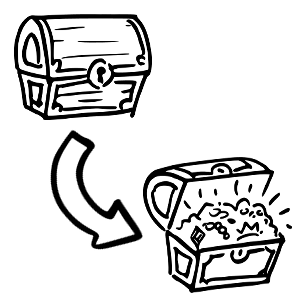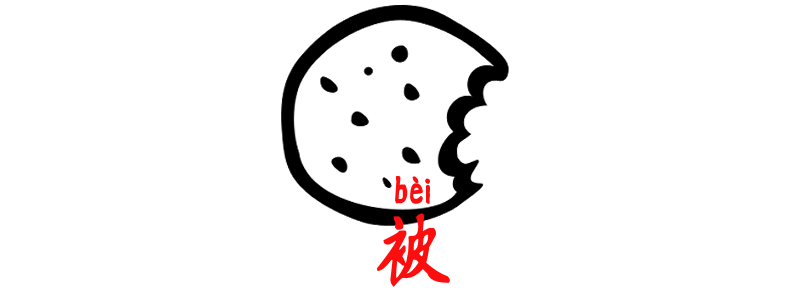Grammar Point:
The passive sentence in Chinese is called 被字句 bèizìjù. It is used to construct passive structures and can introduce either the doer of the action or the action itself. In this article, we are going to practice how to avoid mentioning the “doer” of the action.
What is Passive Sentence
The passive sentence is formed when the subject of a sentence is the receiver of the action described by the verb. It is the opposite of an active sentence, where the subject performs the action. For example:
| Active Sentence | Passive Sentence |
|---|---|
| 弟弟喝了咖啡弟弟喝了咖啡 My brother drank coffee. | 咖啡被弟弟喝了咖啡被弟弟喝了 Coffee was drunk by my brother. |
| 狗咬了我狗咬了我 The dog bit me. | 我被狗咬了我被狗咬了 I was bitten by a dog. |
| 小偷偷走了包包小偷偷走了包包 The thief stole the bag. | 包包被小偷偷走了包包被小偷偷走了 The bag was stolen by a thief. |
When to Use Passive Sentences
- When you want to indicate that someone has been negatively affected or the result is unexpected.
包包被小偷偷走了包包被小偷偷走了
The bag was stolen by a thief.
沒想到我被老師誇獎了没想到我被老师夸奖了
I didn’t expect to be complimented by my teacher.
- When you want to avoid mentioning the “doer” of the action.
包包被偷走了包包被偷走了
The bag was stolen.
Structure
S + 被 + V + Something
This something is very important. It can either be a complement, an additional object, or just 了le.
王老師被請去開會了王老师被请去开会了
Mr. Wang was invited to a meeting.
蛋糕被吃了蛋糕被吃了
The cake was eaten.
蛋糕被吃完了蛋糕被吃完了
The cake was eaten up.
我要的書被借走了我要的书被借走了
The book I wanted was borrowed.
那張畫被買走了那张画被买走了
The painting was purchased.
你的蛋糕被丟掉了你的蛋糕被丢掉了
Your cake was thrown away.
Negation and Adverbs
You should always place negation words and adverbs in front of 被 bèi, 叫 jiào, 让 ràng in Chinese sentences.
還好杯子沒被摔破还好杯子没被摔破
Good thing you didn’t break the cup.
教室的燈早就被關上了教室的灯早就被关上了
The lights in the classroom were already turned off.
那樣的壞人應該被關起來那样的坏人应该被关起来
Bad people like that should be jailed.
Questions
You cannot form a question using 被不被 bèibúbèi. However, you can use question particles like 吗 ma, question words, or 是不是 shìbúshì to form questions.
你被打過嗎?你被打过吗?
Have you been beaten?
你是不是被打過?你是不是被打过?
Have you been beaten?
你被什麼東西打過?你被什么东西打过?
What have you been hit with?
FYI
Hey there! Let me tell you a little bit about our culture here. In the past, Taiwan had a practice of using physical punishment in schools and homes. However, I’m happy to inform you that those days are long gone, and such practices have been banned.
Nowadays, we focus more on creating a nurturing and supportive environment for our children and promoting positive discipline methods. It’s important to mention that this topic of physical punishment is still sometimes brought up in conversations among people. They might casually ask each other, “What have you been hit with?”
Please don’t be alarmed if you come across such discussions. It’s just a way for older generations to reminisce about their own experiences and reflect on how times have changed. It’s not something that happens today, and it certainly doesn’t reflect the values and practices of modern Taiwan.
Practice
TouchHover over the space to see the answers.

➡️
麵包被吃了一半面包被吃了一半
Half of the bread was eaten.

➡️
瓶子裡的信被拿出來了瓶子里的信被拿出来了
The letter in the bottle was taken out.

➡️
寶箱被打開了宝箱被打开了
The treasure box was opened.
- The Passive Sentence 1 (HSK 3)
- The Passive Sentence 3 给 gěi (HSK 6)
- The Passive Sentence 4 (Advanced) (HSK 7-9)


